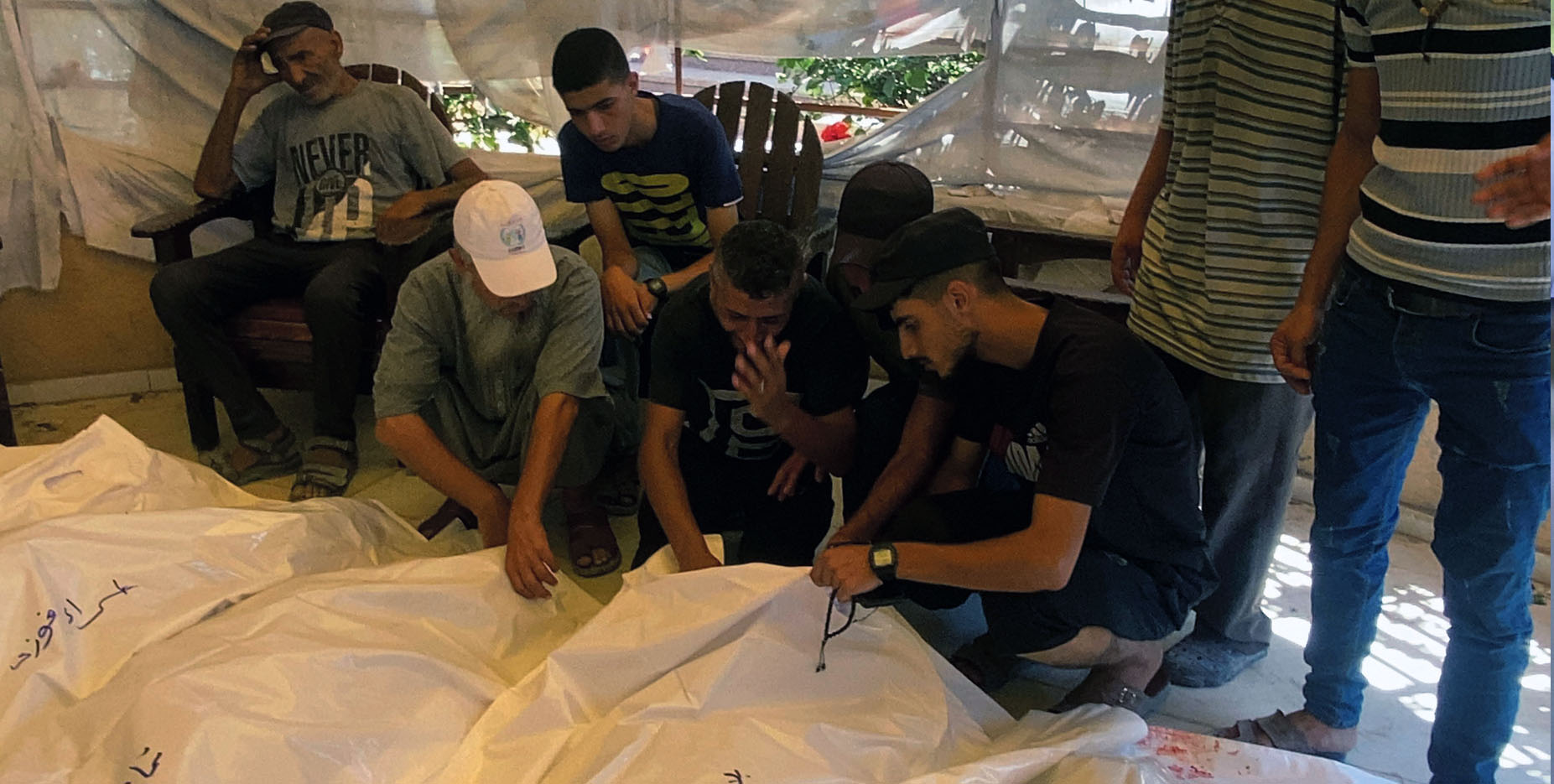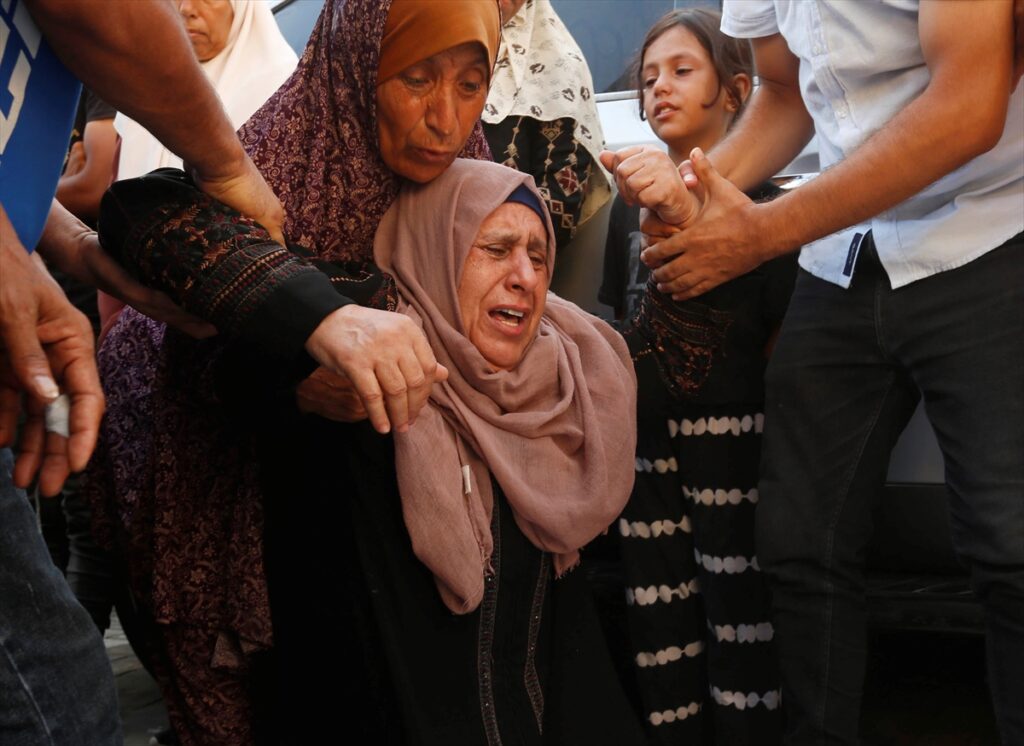
Elham Asaad Buaras
The overall impact of Israel’s Gaza conflict suggests that the actual number of Palestinian deaths could exceed 186,000, as indicated by a study published in the medical journal The Lancet on July 5. According to Gaza’s Ministry of Health, over 38,000 Palestinians have lost their lives since Israel initiated its military offensive on October 7 following deadly Hamas attacks.

Family members in Palestine mourn the tragic loss of their loved ones after an Israeli airstrike hit the Al-Raii family home. The bodies were brought to Al-Aqsa Martyrs Hospital in Deir al-Balah, Gaza on July 13, 2024. (Credit: Ashraf Amra/AA)
The study also emphasizes that thousands of Palestinians remain buried under rubble, and indirect deaths resulting from the destruction of health facilities, food distribution systems, and other public infrastructure are not accounted for in the official death toll. Beyond direct violence, conflicts like the Gaza war have far-reaching health implications. Even if hostilities cease immediately, numerous indirect deaths, such as those caused by diseases, are expected in the future.
Moreover, the study highlights that the death toll is anticipated to rise significantly due to the extensive destruction of Gaza’s infrastructure, shortages of food, water, and shelter, and funding cuts to the United Nations Relief and Works Agency for Palestine Refugees. “In recent conflicts, such indirect deaths range from three to 15 times the number of direct deaths,” the study notes.
Using a “conservative estimate” of four indirect deaths per one direct death, the study concludes that up to 186,000 or potentially more deaths could be linked to the Gaza war. This number would represent almost 8 percent of Gaza’s pre-war population of 2.3 million.
Furthermore, the Lancet study dismisses claims of data fabrication leveled against the Palestinian authorities in Gaza over its death toll as “implausible,” a sentiment echoed by Israeli intelligence services, the UN, and the World Health Organization. The study underscores the challenges in accurately documenting the true scale of casualties due to the severe destruction of Gaza’s infrastructure.
“Documenting the true scale is crucial for ensuring historical accountability and acknowledging the full cost of the war. It is also a legal requirement,” the study asserts. In interim rulings in January in a genocide case brought against Israel, the International Court of Justice emphasized the need to “take effective measures to prevent the destruction and ensure the preservation of evidence related to allegations of acts” under the Genocide Convention.
Photo: Bodies of Palestinians killed by the Israeli army’s attacks are brought to Nasser Hospital for funerals in Khan Yunis, Gaza on July 16, 2024. (Credit: Doaa Albaz/AA)
READ MORE | GAZA SIEGE | SPECIAL COVERAGE
New Govt takes baby steps on Palestine as Labour loses Muslim voters
Editorial: New Government, fresh promises, but little real change
Editorial: Labour’s landslide victory: a triumph in seats, not hearts
Biden Administration loses twelfth key appointee amid controversy over US Gaza policy
Israel approves the largest West Bank land grab in 30 years
Comment: Architectures of liberation; inside pro-Palestine encampments at UK universities


